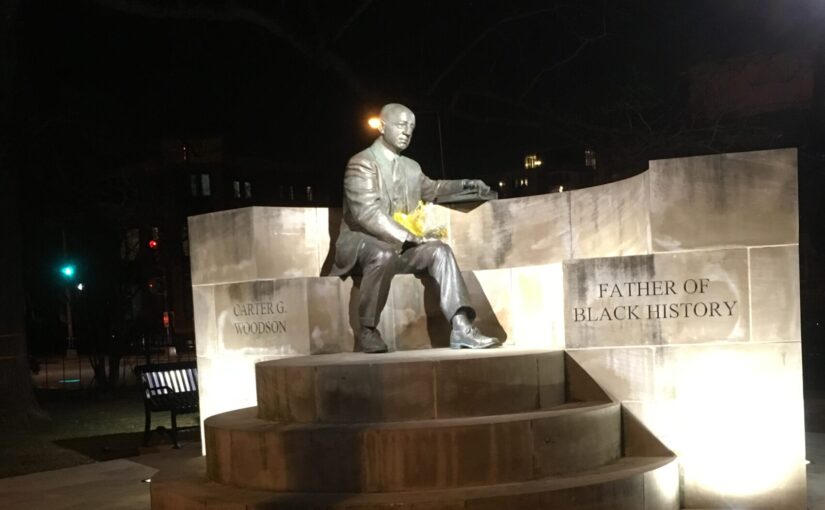It’s Black History Month, so I am continuing with the series of posts regarding Shaw resident and Father of Black History, Carter G. Woodson and his book The Mis-Education of the Negro, published in 1933.
This is sort of connected to the previous chapter, infighting still continues in this chapter. This time the example is among the working class:
Another employer conducting a wholesale business placed a Negro foreman in charge of others of his race to function as one of the important departments of the establishment. The Negroes working under him, who had formerly taken orders without question from the white foreman, soon undertook to take liberties with the promoted Negro and to ignore his orders. Knowing that the Negro foreman was well qualified, however, and being personally interested in him, the employer instead of doing what so many others under such circumstances had done, dismissed those who refused to cooperate and supplied the vacancies with others until an efficient working force could thus be obtained. Only a few employers, however, have had such patience and have manifested such interest in the advancement of the Negro. As a rule they merely dispose of Negro foremen with the excuse that one Negro will not take orders from another.
This refusal of Negroes to take orders from one another is due largely to the fact that slaveholders taught their bondmen that they were as good as or better than any others and, therefore, should not be subjected to any member of their race. If they were to be subordinated to some one it should be to the white man of superior culture and social position. This keeps the whole race on a lower level, restricted to the atmosphere of trifles which do not concern their traducers. The greater things of life which can be attained only by wise leadership, then, they have no way to accomplish.
Undermining each other among the upper classes and the same among the working classes.
Exploitative preachers were a problem in the past, a problem in the present, and sadly will probably be a problem in the future. Despite Woodson’s criticisms of Black preachers, I still refuse to believe that he’s an atheist.
We must feel equally discouraged when we see a minister driving up to his church on Sunday morning in a Cadillac. He does not come to feed the multitude spiritually. He comes to fleece the flock. The appeal he makes is usually emotional. While the people are feeling happy the expensive machine is granted, and the prolonged vacation to use it is easily financed. Thus the thoughtless drift backward toward slavery.
In my last post I thought the African American doctor was in the admirable column for Woodson. I spoke too soon.
When you see a physician drive to one’s door in his Pierce Arrow, you cannot get the impression he has come to treat the patient for a complaint. He has come to treat him for a dollar. Such physicians, as a rule, know less and less medicine as the years go by, although they make much money by learning human psychology and using it for personal gain. With leeches of this type feeding upon an all but impoverished people and giving them nothing back there can be no hope for advancement.
sigh.
What did Woodson want? He wanted a servant leader, not wolves among sheep.
The servant of the people, unlike the leader, is not on a high horse elevated above the people and trying to carry them to some designated point to which he would like to go for his own advantage. The servant of the people is down among them, living as they live, doing what they do and enjoying what they enjoy. He may be a little better informed than some other members of the group; it may be that he has had some experience that they have not had, but in spite of this advantage he should have more humility than those whom he serves, for we are told that “Whosoever is greatest among you, let him be your servant.”




 .
.